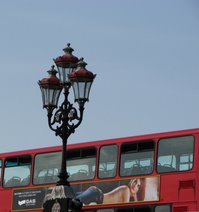Whenever I am in northern France or western Belgium I am always drawn to the many war cemeteries of WWI that are scattered over the countryside.
I visited a few with my own Father and I find them moving yet peaceful at the same time. The peace is in great contrast to the horrific events that occured around them.
This time was no exception and I was delighted for the first time be able to hear the last post played in Ypres (Leper being the Belgian name) at the Menem Gate memorial. This is something that has happened every single day since 1928, as a sign of remembrance for the vast allied casualties suffered in the area.
It is one of life's coincidences that this weekend when we visited Ypres and a couple of nearby cemeteries, saw the passing of the last British survivor of the trenches, Harry Patch. That he and Henry Allingham who died a week before should have lived well past 110 seems like a special gift that in recent years has served to strengthen the memory of what is probably the greatest calamity to be suffered by Britain. With almost a million deaths there is no single event that has caused so many British deaths than WWI.
It is sad that the last of the WWI veterans have now passed on but remarkable that it should be 2009 before the last veteran from a war that ended in 1918 has died.
The many cemeteries in Flanders are worth visiting. This was my first visit with my two year old son and probably one of the reasons why I forgot to take a map. I was looking for the vast cemetery at Passchendale but we ended up at the Polygon Wood and Buttes New British Cemeteries close to Ypres. The photo below was taken yesterday, the day when the last veteran passed away.

Here the remains of a trench can be seen. What was once open battleground is now a mature forest.
WWI in many ways seems the most pointless of wars. The powers fighting each other were in many respects similar. This was no titanic struggle for freedom like WWII. Yet due to the terrible mistakes that have been so widely documented, millions of men died in a tiny area of Europe.
The words of Rupert Brooke capture the feeling that a part of Flanders will be for ever England:
If I should die, think only this of me:
That there's some corner of a foreign field
That is for ever England. There shall be
In that rich earth a richer dust concealed;
A dust whom England bore, shaped, made aware,
Gave, once her flowers to love, her ways to roam,
A body of England's, breathing English air,
Washed by the rivers, blessed by the suns of home.
And think, this heart, all evil shed away,
A pulse in the eternal mind, no less
Gives somewhere back the thoughts by England given;
Her sights and sounds; dreams happy as her day;
And laughter, learnt of friends; and gentleness,
In hearts a peace, under an English heaven.
Rupert Brooke (1887-1915)


2 comments:
"In Flanders fields the poppies blow
Between the crosses, row on row
That mark our place; and in the sky
The larks, still bravely singing, fly
Scarce heard amid the guns below."
John McCrae
There are many Canadians buried there as well, sadly. At least now our soldiers are repatriated which wasn't possible in that day...ciao
I do realise that many Canadians were lost too.
It seems this is a trend that continues today, sadly.
Thanks for including the verse by McCrae
Post a Comment